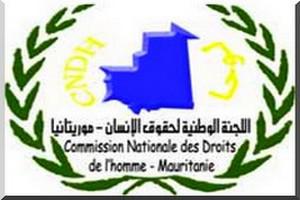
In February 2017, the Subcommittee on Accreditation (SCA) of the Global Alliance of National Human Rights Institutions published its report following its November 2016 session, during which the National Commission on Human Rights (CNDH) was examined, and decided to postpone the review of the CNDH to its Autumn 2017 session.
Assessing the compliance of the CNDH with the Paris Principles - which guarantee the independence and efficiency Of the National Human Rights Institutions (NHRIs), the SCA however expressed many concerns, including the lack of transparency in the appointment of its members and the lack of independence from the executive.
In July 2016, Alkarama and number of local NGOs submitted a report to the SCA, pointing out the CNDH's non-full compliance with the Paris Principles and stressing that the CNDH did not play the expected role of an institution with A status since 2011.
On the independence of the Commission: selection and appointment process and political representativeness
In its preliminary conclusions, the SCA noted that the selection and appointment process of the CNDH members was not sufficiently transparent and open and therefore not based on merit and experience. The SCA thus encouraged the CNDH to implement an equitable and participatory nomination process to ensure pluralism in its composition. According to human rights activists consulted by Alkarama, the most active NGOs and the most vocal critics of the authorities are often excluded from the nomination process without any justification. This exclusion led many NGOs to denounce the exclusive and unilateral nature of the appointment process in a public declaration issued in April 2016.
The SCA thus recalled that under the Paris Principles, the NHRIs should be independent of the government and that this independence should be reflected in its composition, decision-making and mode of operation, which is still not the case to date in Mauritania. Despite the reforms undertaken in 2012, Alkarama and the so-signatories of the report pointed out the CNDH’s lack of independence from the executive power, especially since the NHRI it directly and solely reporting on its activities to the government.
Lack of cooperation with civil society
Following allegations of civil society transmitted by Alkarama to the SCA, of a lack of cooperation of the CNDH with some organisations, particularly the most vocal critics of the government, the SCA encouraged the CNDH to provide additional information in this regard. It also recalled the importance of further cooperation with a wide range of civil society organisations to enable the NHRI to be more effective in fulfilling its mandate of promoting and protecting human rights.
The CNDH's lack of independence from the executive caused distrust among many NGOs, especially those working on subjects considered sensitive, such as slavery, torture or Arbitrary detention. The Commission never denounced these persistent practices and on the contrary, merely adopted on several occasions the government's position by for example commending the authorities for the absence of torture, despite the many cases which had been documented by civil society.
Failure to report cases of human rights violations
In its report, Alkarama expressed concern about a statement issued by the CNDH on its website dated January 7, 2014, in favour of the execution of Mohamed Cheikh Ould Mohamed, a 28-year-old engineer sentenced to death for apostasy. Alkarama considered that such a statement infringed the credibility of the CNDH as an independent body and recalled that it did not fall within the commission’s mandate to pronounce itself on the guilt of a defendant, particularly when the person concerned is being prosecuted arbitrarily and is at risk of being sentenced to death. The SCA noted the lack of formal or public declaration of the CNDH affirming the incompatibility of the application of the death penalty for an offence of that nature with the international human rights norms and standards.
Alkarama’s joint report also pointed out that in October 2016 the CNDH failed again in fulfilling its role by not condemning the arrest of anti-slavery activists, even after a group of seven United Nations human rights experts had issued a press release to express their "serious concern" about their situation. In their statement, the experts highlighted that the activists were "imprisoned for their alleged role in a demonstration against forced evictions in Nouachkott" and "targeted by the government for their anti-slavery advocacy".
The SCA reminded the CNDH that "NHRIs are supposed to promote and ensure respect for all human rights and democratic principles, as well as strengthen the rule of law in all circumstances without exception."
What’s next?
The Subcommittee on Accreditation (SAC) of the Global Alliance of National Human Rights Institutions having decided to refer the examination of the Mauritanian National Commission on Human Rights, the final decision on the retention of its status A or its demotion to status B will be published at the end of the second session in 2017.
For more information or an interview, please contact media@alkarama.org (Dir: +41 22 734 1008).
